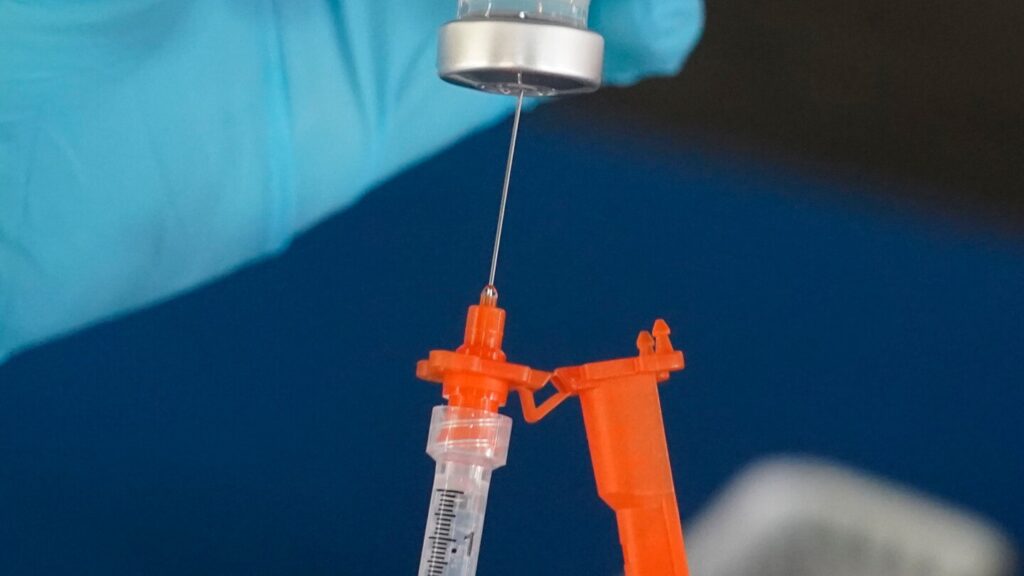
WASHINGTON (AP) — In a controversial move, the Trump Administration’s top vaccine official, Dr. Vinay Prasad, has restricted the approval of two COVID-19 vaccines, defying recommendations from government scientists. This decision, detailed in federal documents released Wednesday, highlights a significant intervention by Prasad, who operates under Health Secretary Robert F. Kennedy Jr.
The newly released memos from the Food and Drug Administration (FDA) reveal that Prasad personally intervened to impose limitations on COVID-19 vaccines developed by Novavax and Moderna. Despite the FDA’s approval of both vaccines in May, following extensive analysis by its staff, Prasad opposed the initial plan to approve the shots for individuals aged 12 and older. Instead, he restricted their use to seniors and individuals with underlying health conditions, citing the need to reassess vaccine benefits amidst declining COVID-19 mortality and hospitalization rates.
Context and Background
The decision to limit vaccine approvals comes as COVID-19 continues to pose a public health threat, with the Centers for Disease Control and Prevention (CDC) reporting 32,000 to 51,000 U.S. deaths and over 250,000 hospitalizations since last fall. The most vulnerable populations include seniors and children under two years old, particularly infants under six months.
Dr. Prasad’s intervention is notable, as top FDA leaders rarely engage in the review of individual products. While officials like Prasad have the authority to overrule staff recommendations, such actions are uncommon and often spark controversy. The New York Times first reported on the FDA documents, shedding light on this unusual override.
Expert Opinions and Reactions
Prasad, who assumed leadership of the FDA’s vaccine center in May, following the resignation of Dr. Peter Marks, has been a vocal critic of certain public health measures. His appointment came after disagreements with Kennedy, and since then, he has collaborated with FDA Commissioner Mark Makary to establish new guidelines that restrict future COVID booster approvals to high-risk groups, such as seniors and those with medical conditions like asthma and obesity.
The revised guidelines align with the recent FDA approvals for Novavax’s Nuvaxovid and Moderna’s mNexspike vaccines. Novavax’s offering is the only protein-based coronavirus vaccine available in the U.S., while Moderna’s is an updated, lower-dose version of its mRNA-based vaccine.
“Even rare vaccination-related harms both known and unknown now have higher chance of outweighing potential benefits,” Prasad wrote in a five-page memo explaining his decision.
Scientific Community’s Perspective
Outside researchers have observed that myocarditis, a rare form of heart inflammation associated with mRNA vaccines, tends to resolve quickly and is less severe compared to myocarditis caused by COVID-19 infection itself. The FDA recently updated warning labels for Moderna and Pfizer vaccines to reflect this risk, and Prasad’s override memo highlighted ongoing concerns about myocarditis frequency, prompting further studies as a condition for Moderna’s updated shot approval.
Andrew Nixon, a spokesman for the administration, stated that Prasad “has raised serious concerns” about these risks, emphasizing the commitment to maintaining the “gold standard of science” in decision-making.
Implications and Future Outlook
The move to restrict vaccine approvals represents a broader trend within the Trump Administration to scrutinize vaccine benefits against potential risks. This approach aligns with Kennedy’s long-standing skepticism of vaccines, which has influenced policy decisions during his tenure as Health Secretary.
As the debate over vaccine safety and efficacy continues, the FDA’s actions may set a precedent for future vaccine approvals, potentially impacting public health strategies and vaccination rates. The agency’s decision to mandate further studies on myocarditis risk underscores the ongoing need for rigorous scientific evaluation in the face of evolving data.
Looking ahead, the implications of these restrictions will likely unfold as new COVID-19 variants emerge and public health priorities shift. The balance between ensuring vaccine safety and maximizing public health benefits remains a critical consideration for policymakers and health officials alike.
The Associated Press Health and Science Department receives support from the Howard Hughes Medical Institute’s Department of Science Education and the Robert Wood Johnson Foundation. The AP is solely responsible for all content.






